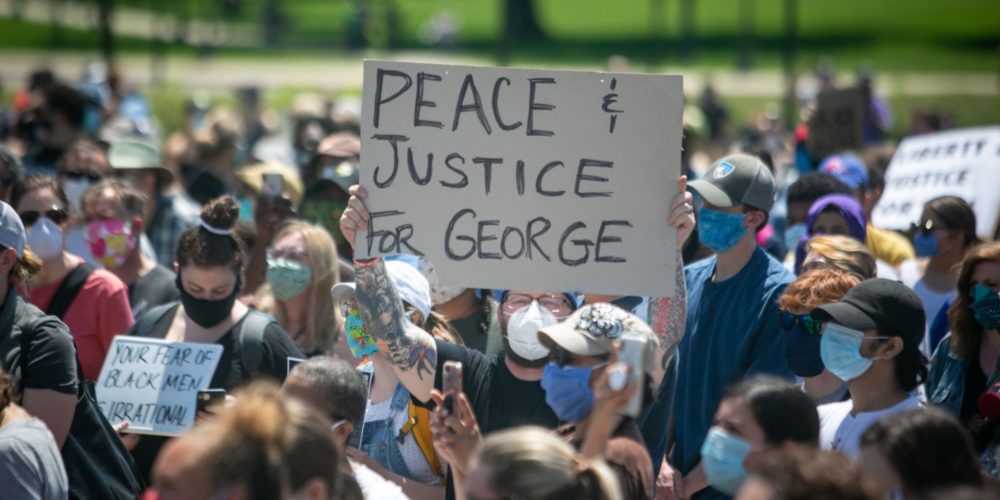
Dear Colleagues,
I write with a message of solidarity with and for our colleagues, students, and communities – all who have painfully witnessed yet another instance of state-sponsored racial violence in the murder of George Floyd and are witnessing its unsurprising but deeply unsettling aftermath.
Today we are more acutely aware than ever that two plagues ravage our country: the COVID-19 pandemic and our nation’s long history of racism. And we cannot ignore the ways these two are intertwined, as the virus has exacerbated and brought into sharp relief the economic and health inequities in our City and our nation. Indeed, most at risk of contracting the virus and experiencing deadly complications disproportionately encompass our Black and Brown communities. These communities are more likely to be those who work on the front lines of combating the virus and keeping essential services going (particularly the less visible services in the healthcare, food, and service industries). Many of these folks are immigrants and undocumented workers, many among them also experiencing homelessness, whether due to loss of work, healthcare crisis, or while continuing to work. We also must acknowledge the heightened risk and losses being experienced by incarcerated individuals and their families, and many others who are especially vulnerable during times of crisis and shortage and socio-political tension.
Dr. Cheryl Grills’ appearance on ABC7 news provides a cogent analysis of the current context in Los Angeles, as in so many other cities across the country, speaking clearly about structural and persistent inequities and injustices, as well as the range of individual and collective responses we are witnessing in our streets and on our screens. Her analysis is grounded in her training as a social scientist imbued with voices from history and literature, and informed by decades applying her expertise in Black psychology and community healing/resilience. She provides an example of how we confront the challenges before all of us as educators, as we seek to help each other, our students, and the public understand this explosive moment grounded in our academic expertise and our commitments as teacher-scholars. Message to LMU History Students from the Chair, from the Chair of the History Department to our history students, is another example of how disciplinary approaches inform our real-time witnessing of events, and also shape our actions in ways consistent with our academic methods and values.
In the midst of all that is enveloping our attention and breaking our spirits, we also have to continue the day-to-day work of the College and the University. We have an obligation to find ways to grapple with and discuss these complex, vexing, and contentious questions as a campus community-in-absentia. Please stay tuned for University messages about a virtual forum being organized by our colleagues Henry Ward, Cheryl Grills, Stefan Bradley, and others. LMU HR Wellness also is attending to these needs with their Solidarity + Self-Care + Mindful Exercises for Families. These and many other opportunities for us to gather and reflect, to learn and teach, to process and console, and to consider ways forward will be essential to our ability to move beyond coping to meaningful action.
Today we are called up to redouble efforts to animate our commitment to diversity, equity, and inclusion, at LMU and beyond. Regardless of each of our political stances or partisan loyalties, we must acknowledge the urgent need to act boldly with a keen sense of personal accountability, to repudiate all acts of dehumanization that deny justice to our brothers and sisters, to hold tight to the bonds that connect us to one another, and to use the incredible privilege we have as educators to ask hard questions and seek a better future for all.
Please stay safe as you seek to act with courage – on the streets and in our classrooms, with your neighbors and through formal political processes – in the face of these interlocking challenges.
In solidarity,
Robbin D. Crabtree
Dean, Bellarmine College of Liberal Arts



